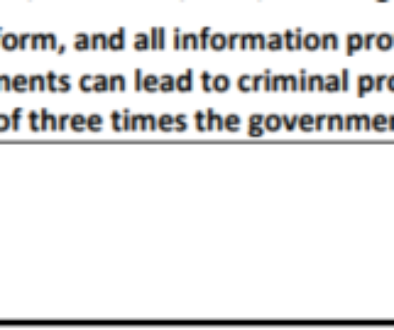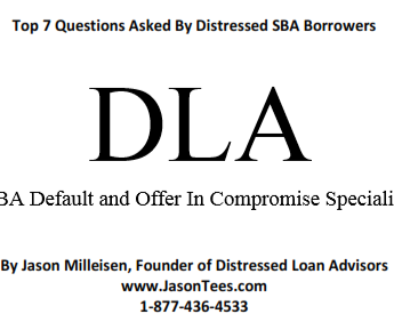Once you’ve come to terms with the fact that your business is no longer viable, it’s always prudent to formulate an exit strategy. With so much money at stake, this is certainly no time to “wing it”. One of the initial steps down the path towards an Offer In Compromise is to liquidate the business, which can include a sale of the assets, or a sale of the business as a “going concern”. In this article, we will explore the types of sales that this workout expert would consider legitimate, and types that I’d consider to be ethically and legally questionable.
Here is the key to a legitimate transaction: Whether it be the sale of equipment, or the sale of the business as a whole, the SBA and your lender are only interested in “ARMS LENGTH” transactions. An arms length transaction can be defined as one where the buyer and seller are independent and act in their own best interest.
So what is an example of an arms length transaction?
Let’s say your business is struggling so you list it for sale. You get lucky and find an interested buyer. You’ve never met the buyer before, and you are both negotiating in good faith. You are trying to get the most money you can, and he’s trying to pay the least. He will take over the business, and you will have no involvement with the business once the sale is completed. In short, this is straight forward sale in which both parties have no ulterior motives. To most banks, this transaction would be considered an arms length transaction.
So what would NOT be considered arms length?
– Sale of the business/business assets to a friend, family member, or business associate. Since you have a relationship with these parties, it would be questionable whether both parties are acting solely in their own best interest. If you make a sale with the intention of buying or leasing the business back at a later date (and do so in order to submit an Offer In Compromise), then you are running the risk of being accused of fraud if your scheme is uncovered.
– Creating a new company, and selling the business/business assets to that entity while representing that the new company is an unrelated party. This is clearly fraudulent.
– Selling the business/business assets to an entity (C-Corp, S-Corp, LLC, partnership) owned by a friend, family member, business associate, or anyone else for the sole purpose of submitting an OIC, with the intent to buy the business back at a later date.
Overall, if you think you’ve found a loophole by trying any of the situations that I’ve described as NOT arms length, let this be a warning to you that these are not loopholes. They are thinly veiled attempts to defraud your lender and the SBA.
My advice, as always, is to play it straight and do the right thing.


